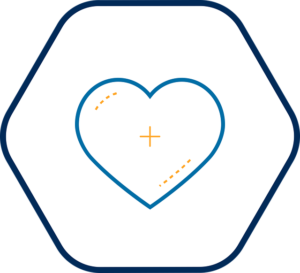
Editorial Note: Forbes Advisor may earn a commission on sales made from partner links on this page, but that doesn’t affect our editors’ opinions or evaluations.
Customer relationship management (CRM) systems provide efficiency to customer-oriented business models. CRM is a software system that collects and analyzes customer data (as well as company-wide data of other types) and stores it all in an easily accessible, centralized location. Businesses of all sizes can benefit greatly from the head start on workflow and organization that CRMs offer. Read on to learn what CRM can do for your team.
Featured Partners
What Is a CRM?
Though they have been around for over 30 years, customer relationship management systems have truly expanded in popularity over the past decade or so—no doubt thanks to the rise of online business and social network activity. One of the main reasons CRMs are so helpful in today’s marketplace is their ability to automatically monitor customer activity and collect data across the network channels that these programs provide. Sales and marketing teams can interpret the data presented and direct energy toward creative strategies for increasing customer satisfaction and, as a result, generating revenue.
In reality, CRMs are nothing but a simple, hopefully, secure database of client details, account information and company records. Easy access to customer profiles helps build and maintain more personalized relationships between a business and its customers, and can also help create marketing campaign strategies that speak more directly to specific future consumer needs.
Whether stored within a company’s on-premise server or on a cloud server, a CRM provides a way to log customer interaction history like phone calls, email correspondence and social network posts and mentions. Depending on the specific software program a company chooses, various tools like email integration and task triggers can help to keep up on deadlines and maintain consistent customer outreach, even while upcoming marketing campaigns are still in development.
How CRMs Work
Specifically designed to make retrieval of information quick and painless, CRMs can help give both customers and staff a more positive and direct experience. Apart from customer interactions, the unified nature of the storage system promotes transparency and clear communication within the company itself.
With a centralized platform to save appointment reminders, to-do lists and track daily task completion, there is far less room for misunderstandings and a seamless workflow process is developed and maintained without high overhead or stress. This contributes to organization, time management and directs human cognitive energy towards creative opportunities for growth and profit.
Who Do CRMs Benefit and How?
No matter how big or small a business, CRMs have become an invaluable tool for anyone in the working world. Whether an upscale competitor with numerous branches and departments, an underdog small business or a new startup looking for ways to stand out, organization and an efficient workflow can make or break the path to success and expansion. An organizational software like this can even benefit smaller organizations like non-profits, volunteer groups as well as temporary creative productions.
There is no real minimum amount of data entry required in order to reap the benefits of CRMs, though the software is probably the most vital for businesses that have remote staff or product distribution. For businesses just gaining momentum, it is incredibly useful for building and maintaining an online presence and activity across network channels and requires less brainpower for simple tasks like marketing announcements or customer follow-up messages. Although automated, these tools can also be customized and personalized, ensuring that customers feel seen and heard, and have needs met in an honest and holistic way. In other words, CRMs give the monotonous organizational tasks to an automated system, while the humans involved can focus more on human relations without burning out from robotic busy work.
Two big areas where CRMs help are marketing and sales, which can be integrated on the same platform to share knowledge and make informed decisions for campaign strategies and sales projections. By tracking customer activity across other online platforms, CRMs can build profiles that indicate to sales teams where to direct their attention for closing on deals and, alternatively, where some leads may either need extra encouragement or to be let go. Marketing teams can also campaign smarter with direct access to the sales projections generated by the CRM-collected data on customer trends and spending behavior.
Thanks to automated, consistent tracking, CRMs prevent businesses from remaining stagnant, providing constant up-to-date insight on customer searches and interests, as well as rhythmic, consistent engagement with current customer bases via messages, email and social media. For those customers who exhibit especially active levels of engagement with the company, personalized messages can be leveraged to invite specific customers to participate in promotions for the growth of the business, which enhances a sense of mutual belonging and loyalty for clientele. The more clients interact, the more the system flags them and the more deals and offers can be directed towards the specific needs of the most active clientele.
In Sales
For the sales department of any business, perhaps a CRM’s most helpful feature is its ability to record and track data on potential and current clients via sales calls, emails and across online channels. Automated flags and triggers keep lead scores constantly up to date, and “listening” abilities keep tabs on the status of current deals in process to avoid creating complications regarding new contacts. Projection tools are also extremely helpful for sales teams to predict where and when to put efforts toward specific prospects.
In Marketing
Teams can also use the data tracking and projections that marketing CRMs generate in order to strategize more effective marketing campaigns. For a department relying heavily on constant innovation and creative thinking, this is an invaluable energy saver for staff. Instead of crunching numbers and monitoring customer activity, marketing team members can optimize time and cognitive steam by accessing the reports on their dashboard, better trust comprehension and currency and subsequently utilize the information to brainstorm the best way to increase sales and attract more attention across platforms. This feature decreases a company’s marketing costs because it streamlines marketing resources towards prospects most likely to result in profit.
In Customer Support and Service
This is where the “customer relationship” aspect becomes key in CRM performance. Follow-ups after customer interactions and mass emails can be customized with triggered reminders, as well as automated sending. The option to personalize messages is hugely beneficial for customer satisfaction. Even though we depend on automated systems in so many ways now, most of us still like to be recognized as human beings, so adding individualized names in emails and including details from customer data go a long way in creating a welcoming atmosphere. In addition to helping service agents focus more human attention on their daily interactions, customers also have more autonomy in how they interface with the company’s services, whether that be over the phone, through email or on a website. Add-ons informed by customer data can be incorporated into a company’s website, which streamlines specific customers’ search results, and triggers a quicker response from customer service if a consumer reports an issue.
In Mobile Accessibility
Similarly, having a CRM that provides intuitive and straightforward mobile use increases both customer and employee satisfaction. Easy mobile accessibility is not only a convenient feature, but is also a necessity for any business today. Since most people do their searching and scrolling while on the move, the more user-friendly your mobile interface, the more likely customers are to come to you when they need something. It is also extremely beneficial for employees to have remote access to company data, contacts and message boards or email inboxes. This can increase productivity and efficiency across departments.
In Task and Project Management
This feature of a CRM makes everyone’s life easier by organizing and setting up schedules, triggering automated reminders for meetings, daily to-do lists and customer follow-ups. Task management boosts knowledge sharing not only within the company but also with vendors and outside collaborators. CRMs can help reduce the brainpower required to organize and outline everyday operations so employees can best utilize time on direct productivity.
Types of CRM
On Premise vs. Cloud-based
The first and simplest distinction between different CRMs out there is that between on-premise and cloud-based CRMs. As is evident by the name, an on-premise CRM is one that is purchased by a business and exists only locally on the company’s server. This is best for companies that have strict security needs and that operate primarily from one fixed location.
Alternatively, there are CRMs that function as Software as a Service (SaaS), better known as cloud-based or on-demand CRMs. This type of software is a subscription for which the company pays monthly or annually and which stores data on the vendor’s servers. In this case, a business has full access to the database from anywhere. This is commonly used by businesses that operate more remotely.
The best thing about cloud-based is also that it is easily scalable, so as a company grows it can easily expand its database without having to make too many adjustments to its on-site server or storage system.
Social
Social channels have become a top spot for marketing campaigns to target prospective customers, so having a CRM specifically geared toward tracking activity on social networks increases the likelihood of catching marketing and sales opportunities and provides more virtual spaces for announcements and campaigns to occupy. A social CRM compiles data collected across social platforms like Facebook, Instagram, Twitter, etc., and uses that data to inform a company on consumer trends and patterns.
Tracking online behavior is crucial for online businesses to keep up with competition, and with the help of an automated monitoring system, businesses can cut back on busywork that often leads to employee burnout. Not only does this type of CRM offer businesses the ability to interface with customers personally in preferred networks, but it also allows for tracking posts and relevant activity across social media platforms, flagging when any issues, events or other mentions arise.
Mobile
Mobile CRMs are just like any other type of CRM out there, except with interfaces primarily designed to accommodate the smaller screens on mobile devices. These are especially useful and make life easier for sales reps, who may receive calls while on the go or away from a traditional desk, and who may be able to avoid a backlog of work once they return if they are able to resolve quick fixes from a phone or tablet. Using these systems, staff can have immediate access to customer data, company files and product information from nearly anywhere.
Open Source
While most CRMs are a finalized, user-friendly product complete with templates and intuitive built-in functions, there are also open source alternatives. Open source software comes with a customizable source code that can be updated to meet more niche business needs. An open source product usually still comes well developed, but is designed with the expectation that a developer will finalize it to meet unique company needs. These are best for niche businesses that require very specific features, where the confines of vendor-developed products could ultimately cause unwanted limitations. There is much more freedom with open source CRM to invent your company’s interface and workflow, but it depends on how much time and energy you are able to spend on the requisite development.
Analytical
Analytical tools in CRMs can be beneficial for staying tuned to sales opportunities and for better understanding and anticipating each individual customer’s profile and behavior. These tools help predict shopping habits and trends and can make savvy financial forecasts for a company. In addition to producing analytical reports, this software can also scout and flag ideal online opportunities for marketing and sales, which might otherwise fly under the radar when left only to a human eye.
Another great feature of software with analytical strengths is its ability to utilize updated information and then morph and adapt to current needs as a business evolves and grows. It can also produce performance reports and track where a business’s weak points might be, encouraging improvement wherever possible. Most importantly for customer relationships, analytics can keep tabs on customer satisfaction and will flag any areas that may need attention, which naturally produces a business persona that listens and responds swiftly to customer suggestions and requests.
Operational
This is the most common of the CRMs out there as it tends to encompass the broadest range of needs. Operational CRMs are designed to prioritize avenues for clear communication among customers and a business’s sales, marketing and service support departments. In short, the software generates leads, finds ways to turn them into deal-seal customers and increases the likelihood of retaining them as valuable future contacts, all while helping solve customer problems in short order.
Bottom Line
Whether we like it or not, we live in a highly automated world where virtual activity has been fully integrated into our economy and culture. Accepting the help of intelligent systems like CRMs will enhance the potential for a business’s rapid growth and ultimate longevity.
Frequently Asked Questions
What can’t CRMs manage?
Since CRMs deal primarily with customer relations, a CRM system is generally not built to manage areas of production, warehousing, shipping, engineering or finance, although data collected could potentially be integrated into the business’s overall portrait of productivity.
Additionally, anything the company does not integrate into the system will not be recorded, and will therefore not be accounted for in data collection and analytics.
In the fast pace of online and entrepreneur businesses today, providing positive and efficient experiences for customers is make or break. It is also beneficial for companies to provide a pleasant and manageable working environment for employees, with interfaces that make life easier and not harder in a world full of data and information to wade through. Ultimately, software should enhance customer relations and employee experience.
Source: https://www.forbes.com/advisor/business/what-is-crm/


